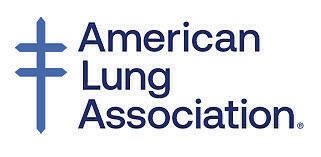

Wynn
It’s that time of year when many parents in Indiana and across the country celebrate as kids have started back to school.
For parents of children living with asthma, the long-awaited return to the classroom may be clouded with questions, according to a news release from the American Lung Association.
What will my child do if they experience symptoms at school? How will teachers, counselors or nurses respond if my child has an asthma crisis?
Parents can make sure their children are equipped for success this school year by following these important recommendations from the American Lung Association.
Visit your child’s health provider prior to the start of the school year, but if you haven’t had a chance to do this yet, schedule an appointment as soon as possible. Be sure your child is up to date with their vaccinations and their asthma treatment plan is current. Also be aware of any potential risk of complications from respiratory illnesses, like COVID-19, flu or pertussis.
Teach your child how to self-administer their inhaler. For a child who is struggling to breathe, having to make the trip from the classroom to the school’s nurse can use up precious time.
After using the Student Readiness Assessment Tool to determine if your child is ready to carry and use a quick-relief inhaler on their own at school, visit their health care provider and ensure your child has had plenty of practice using their inhaler.
The tool is available at lung.training/assessment.html.
Prepare your child’s asthma care team. Make sure your child’s teachers, counselors and coaches are prepared for the school year. Share your child’s asthma action plan along with the appropriate backup medications with your child’s care team.
You also should familiarize yourself with the policies and practices your child’s school has regarding asthma to be sure you understand how asthma medicines are stored, what happens if your child has symptoms at school and general asthma crises protocols.
Talk to your child about smoking and vaping. Smoking and vaping can be extremely dangerous for a child with asthma, as the irritation of the child’s airways can make asthma crises more frequent and severe.
Have a conversation with your child about these dangers. The American Lung Association’s Vape Talk page is a great resource for parents to learn more about how to talk to teens about vaping and the pressure that surrounds it.
Registered respiratory therapist Susan Wynn, director of respiratory and sleep services at Schneck Medical Center in Seymour, said the partnership between the physician and patient/caregiver is one of the keys to effective asthma management.
“I would advise all parents with an asthmatic child to educate themselves by reading available resources on asthma and asthma management and ask their health care provider specific questions they may have,” Wynn said. “Asthma action plans are advised by Centers for Disease Control, American Lung Association and the Global Initiative for Asthma guidelines for asthma management and prevention.”
She said to devise an asthma action plan, parents should discuss a strategy with their doctors, which gives the school guidance on how to deal with any issues the child might have with their asthma at school.
“Both providers and school nurses are very familiar with these plans, and the schools typically make coaches and teachers aware of their availability for asthmatic children on their teams or in their classrooms,” Wynn said. “Regular checkups and monitoring are really a priority for these kids to maintain a good functional status and to prevent severe exacerbations or episodes and missed school days.”
She said the CDC recommends children and adults with asthma should receive influenza vaccinations due to being at a higher risk of flu-related complications.
It is recommended by the Global Initiative for Asthma guidelines to advise patients to have two rescue inhalers (if possible), one at home and one in their bag or pocket.
Wynn said discussing the asthma action plan with the child decreases a child’s anxiety in having a plan proactively in place with clear directions on what action to take if they experience symptoms at school.
“It empowers the child to communicate to teachers and/or the nurse regarding their symptoms early and manage them sooner,” she said. “The partnership of the parent/child and school nurse is a very successful combination.”
Wynn said it’s advised that school staff be made aware of a child’s condition at the start of the school year and the schools provide an opportunity for this, typically in scheduled venues prior to school starting.
If parents are unable to attend these, they should call and talk to the school nurse to discuss their child if they are unable to meet in person.
Wynn said if anyone is interested in obtaining an asthma action plan, Schneck is more than happy to share one. They are available online at schneckmed.org.
